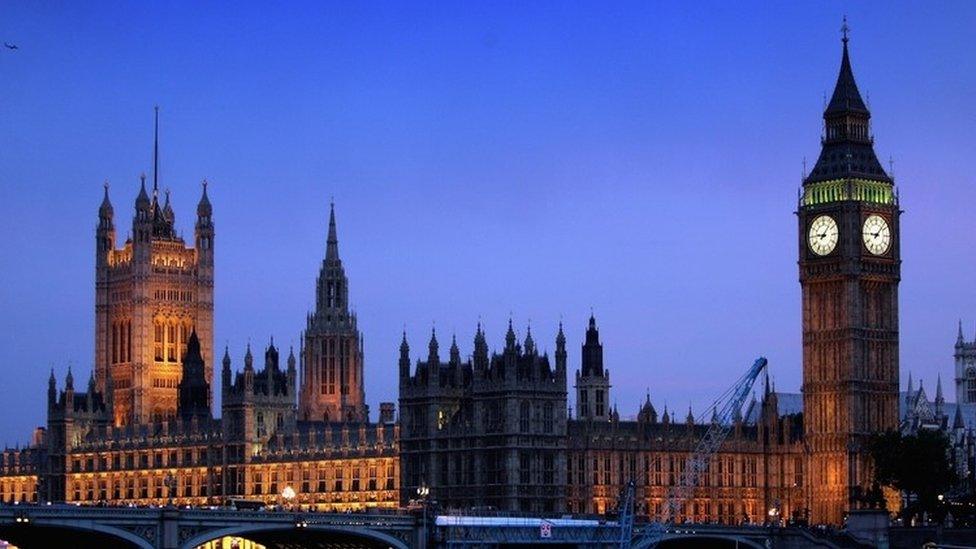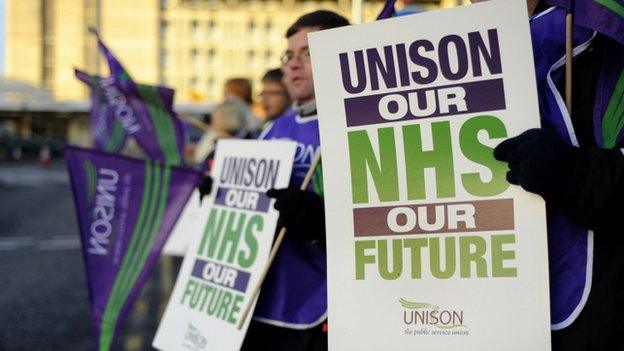Government defeated in Lords over union funding of parties
- Published

The government could be forced to think again over plans to restrict trade union funding of political parties after a defeat in the Lords.
Peers voted by 327 to 234, to give a majority of 93 to a Labour motion forcing the plans to be debated by a cross party select committee.
Labour fears it could lose £6m a year under the Trade Union Bill proposals.
Labour's Baroness Smith of Basildon rejected government claims the bill would not hurt her party financially.
She told peers democracy would be damaged if the government pushed through the changes on funding without them being scrutinised by a select committee first.
'Strong opposition'
As it stands, the legislation would require Labour-affiliated union members to "opt in" to paying a levy to the party instead of having it automatically deducted.
Lady Smith said: "Our genuinely held concern is that this aspect of the bill will have a significant impact on the resources of one major political party - my party, the Labour Party.
"And in doing so, it will both disrupt the political balance in the UK and have a damaging effect on the electoral process and our democracy."
Conservative and Lib Dem peers suggested the government should rethink its proposals.
Tory peer Lord Forsyth said: "It will take away funding from the Labour Party at a time when the Labour Party is perhaps not at its strongest... our Parliamentary system does depend upon having a strong and effective opposition."
Labour is also reported to be set to lose out by about £1.3m a year when state funding for opposition parties - known as Short money - is cut.
Junior business minister Baroness Neville-Rolfe, responding for the government, said Labour's motion would shift the focus of scrutiny on the Bill to party funding and away from its central purpose of trade union reform.
She added: "This Bill is a package of measures and it's disappointing that the party opposite has chosen to misinterpret our intentions."
- Published15 September 2015
